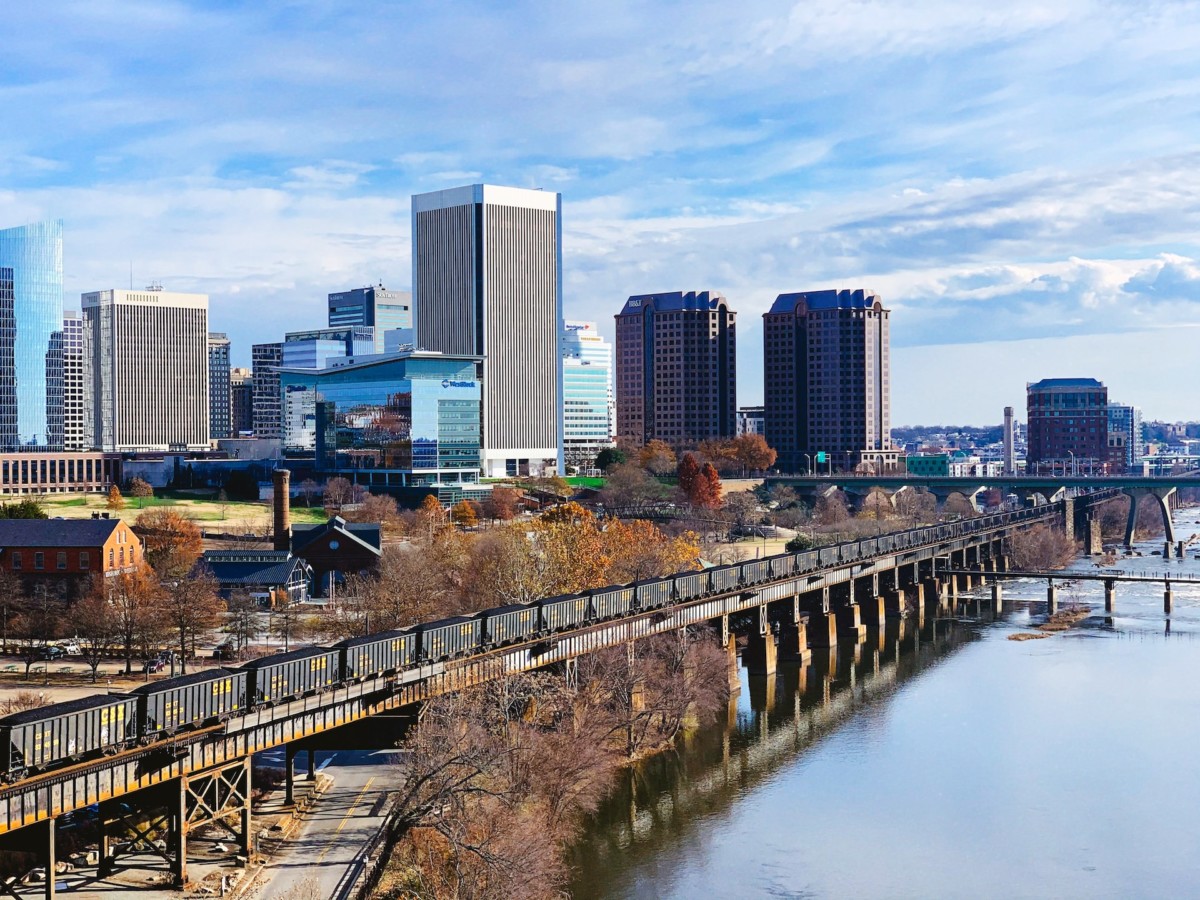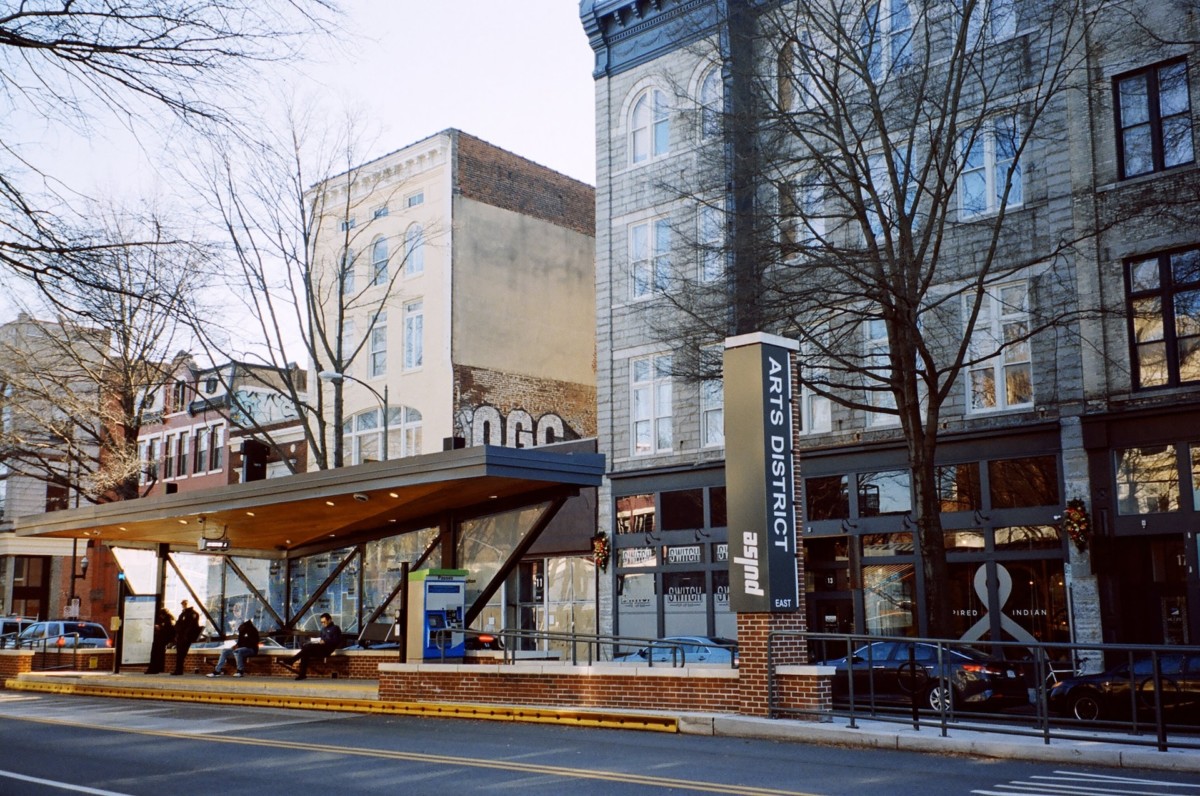From the coastline to the mountain range, Virginia’s diverse geography makes this state favorable to all who live there. Take a hike through the Appalachian mountains or lay on the beach on the sandy shores of Sandbridge Beach; there are lots to see and do in Virginia. Although there are many great reasons to live here, is Virginia a good place to live?
So whether you’re looking at homes for sale in Richmond, considering renting an apartment in Chesapeake, or want to weigh out the reasons to move to this state, here are ten pros and cons of living in Virginia.
Interested in moving to Virginia? Check out:
Homes for sale in Virginia | Apartments for rent in Virginia | Houses for rent in Virginia

Quick Facts about Virginia
Is Virginia a good place to live?
Virginia can absolutely be a good place to live. This state has a little bit of everything: thriving cities, quiet small towns, rolling mountains, and miles of coastline. If you want the energy of a fast-paced job market, Northern Virginia’s tech and government sectors have you covered. Prefer a slower, more scenic lifestyle? You’ll find it in places like the Shenandoah Valley or along the Chesapeake Bay. Job opportunities are solid, especially in tech, healthcare, education, and government—particularly if you’re near D.C. Beyond the big cities, you’ll find tight-knit communities that take pride in their neighborhoods. Public schools are generally well-rated, and the state consistently ranks well for healthcare and overall quality of life. Now, it’s not perfect — traffic in the D.C. metro area can be a headache, and housing prices in that region can be steep. In rural areas, job options can be more limited, and public transportation isn’t always reliable. The weather can swing from muggy summers to unpredictable winters, so you might experience everything from hurricanes to snow, depending on where you land.
1. Pro: Virginia has beautiful, diverse landscapes
Virginia is home to a very diverse landscape. From the famous Appalachian mountain range to the popular Virginia Beach coastline, you’ll never tire of all the beautiful scenery. There are tons of national parks in Virginia showcasing their unique beauty and large bodies of water. The Chesapeake Bay, the Potomac, and thousands of acres of wetlands offer residents a variety of places to explore.
2. Con: Heavy traffic and long commute times
If you’re planning to live in or around Northern Virginia—especially near D.C.—be prepared for some serious congestion. The region consistently ranks among the worst in the country for traffic, with long commute times and crowded highways being part of daily life. Even outside of Northern Virginia, cities like Richmond and Virginia Beach can experience rush hour slowdowns. For those used to lighter traffic or shorter drives, adjusting to the pace of city commuting in Virginia might take some patience.
3. Pro: Virginia’s economy is strong
Virginia’s economy is dynamic and robust, supported by a mix of industries including government contracting, technology, defense, agriculture, and manufacturing. The state benefits from its proximity to Washington, D.C., which drives strong demand for federal jobs and related services. Tech hubs in Northern Virginia and growing sectors like cybersecurity and data centers offer plentiful opportunities for skilled workers. This economic diversity helps provide stability and a wide range of career options for residents across the state.

4. Con: Virginia has a high cost of living
While Virginia offers a lot in terms of lifestyle and opportunity, it often comes with a steeper price tag—especially in popular areas like Northern Virginia, Charlottesville, and the coastal region near Virginia Beach. The median home sale price in the state is around $465,000, which is higher than the national median of $438,000. Renters face similar pressures, particularly in cities close to Washington, D.C. or major employment hubs. On top of housing, everyday expenses like groceries, gas, healthcare, and dining out also trend above the national average in many parts of the state. If you’re eyeing a move to Virginia, especially to one of its high-demand metros, it’s important to factor in the cumulative cost of living when weighing your options.
5. Pro: Virginia has all four seasons
If you want to experience the warmth of the summer, the fall foliage, and the snow of the winter, Virginia is a state to consider. Virginia has five climate regions: Northern Virginia, Western Virginia, Piedmont, Tidewater, and Southwestern Mountain. And although these regions experience slight temperature changes, as a whole, most of Virginia has a humid subtropical climate. You can experience summer temperatures exceeding 85 degrees Fahrenheit, while southern and eastern parts of the state experience even higher temperatures ranging from 90-95 degrees Fahrenheit. Winters can be mild, with temperatures ranging from 30-50 degrees Fahrenheit, with January being the coldest month experiencing snow and ice.
Krystal Bilberry, a local artist shares, “I love that Virginia offers all four seasons, which you can enjoy in any setting you choose. My family loves to vacation in the beautiful mountains of the Shenandoah Valley in the spring and fall. We spend our summers at the beach in historic Yorktown or Ft Monroe in Hampton Roads. In Virginia, we’re always a short drive away from the country, the mountains, the beaches, or the city.”
6. Con: Virginia has hot, humid summers
Although you get to experience all four seasons here, summers in Virginia can be long, sweltering, and sticky—especially in the central and eastern parts of the state. High humidity levels combined with temperatures that frequently climb into the 90s can make outdoor activities less enjoyable during peak summer months.

7. Pro: Excellent public transportation options in large metros
Living in a northern city like Arlington means you’ll have access to excellent transportation. Northern Virginia has multiple public transportation options to get you where you need to go. In Large cities like Alexandria, you’ll find the Metrorail, Fairfax connector, trains, DASH bus, trolley, water taxis, and more. If you’re moving to Virginia and don’t have a car, consider moving to a northern city.
8. Con: Aircraft noise near military bases
In parts of Virginia, especially near cities like Virginia Beach and Norfolk, the presence of large military air stations means residents often deal with frequent aircraft noise. The sound of jets taking off and landing can be disruptive, particularly for those living close to Naval Air Station Oceana or similar facilities. While the military plays a major role in the local economy and community, the noise can be a drawback for people sensitive to sound or looking for a quieter environment.
9. Pro: There are historic sites and monuments all over the state
From Colonial Williamsburg to Civil War battlefields and presidential estates, Virginia is packed with historic landmarks that offer a tangible connection to the nation’s past. Whether you’re exploring Monticello, touring the homes of Washington and Jefferson, or visiting monuments scattered throughout the state, there’s always something to discover. For history buffs and curious newcomers alike, Virginia offers daily opportunities to step back in time.
10. Con: Risk of hurricanes and flooding
Virginia’s coastal regions are vulnerable to hurricanes and tropical storms, particularly during late summer and early fall. Heavy rainfall and storm surges can lead to flooding, especially in low-lying areas. Residents in affected zones often need to prepare with insurance and emergency plans.
.png)
 German (DE)
German (DE)  English (US)
English (US)  Spanish (ES)
Spanish (ES)  French (FR)
French (FR)  Hindi (IN)
Hindi (IN)  Italian (IT)
Italian (IT)  Russian (RU)
Russian (RU)  5 days ago
4
5 days ago
4








Comments